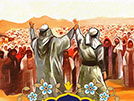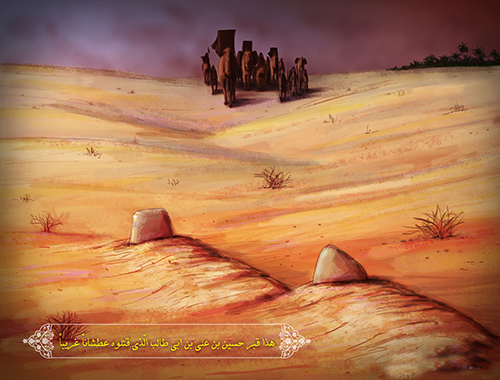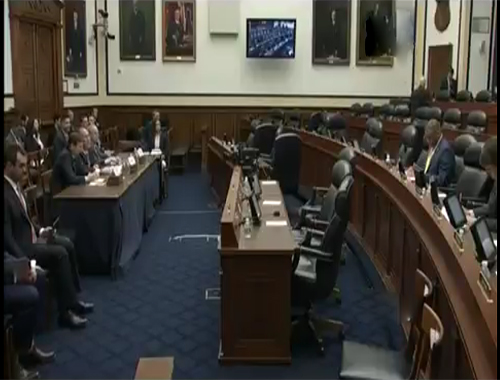Choosing friends and companions
- Details
- Hits: 4539
Choosing friends and companions
in this connection it may also be mentioned that though Islam urges to have cordial relations with others, yet to avoid corruption and the harmful effect of the company of the wicked and the mischievous individuals, it strictly forbids every kind of contact and intimacy with them. Imam al Sajjad (P) gave the following advice to his son, Imam al Baqir (P): "My dear son! Avoid the company of five categories of people. You should neither talk with them nor accompany them nor travel with them."
Imam al Baqir (P) said, "Please tell me who they are".
Imam al Sajjad (P) said:
"Avoid the company of a liar. He is like a mirage and, portrays a false picture of things. Avoid the company of corrupt people. They will sell you for a paltry price. Avoid the company of a miser. He will bring bad name to you before you need his money. Avoid the company of a fool. He would do you harm while intending to do good. Avoid the company of a person who has severed connections with his relatives. Such a person has been denounced at three places in the Qur'an".
Imam Ali (P) in the course of one of his sermons says: "A Muslim should avoid friendship with three kinds of persons: A shamelessly wicked person, a fool and a liar. A shamelessly wicked person paints his evil deeds as good and expects you also to follow his example. He serves you no purpose, neither in this world nor in the next. To be close to him is a misfortune, and to be on calling terms with him is disgraceful".
"A fool can do you no good, nor can you expect him to save you from any calamity. In many cases he may try to benefit you, but he will do harm to you. His death is better than his life; his silence is better than his speech; and his being away is better than his being near".
"As for a liar, life with him can never be pleasant for, you. He carries tales from you to others and from others to you. If he gives you a true report it is followed by a false one. His reputation is slurred. So much so that when he says something true nobody believes him. Owing to the enmity which he entertains in his heart for the people he estranges them from one another and creates malice in their hearts. Be careful and do your duty to Allah".
Cheerfulness and politeness
Beside being friendly one should be polite and cheerful, so that other people may enjoy his company. His social behavior should be a sign of his cordiality.
The holy Prophet has said: "Cheerfulness removes malice from the heart".
He has also said:
"There are two traits of character which will, more than anything else, lead my ummah to Paradise ‑ piety and politeness".
Once, while speaking to the Hashimites, the holy Prophet said an interesting thing:
"As you cannot win the hearts of all the people by means of your wealth, try to win them by cheerfulness and polite manners".
Imam al Baqir (P) has said:
"He who has better manners and better habits has more perfect faith.
Imam al Sadiq (P) has said:
"Good manners melt the sins in the same way in which the sun melts the snow".
On being asked to define good manners, the Imam said: "Be courteous, talk in a pleasing manner and receive your brother‑in‑faith cheerfully".
"Bad manners ruin faith in the same way in which vinegar destroys honey".
Bad manners not only cause inconvenience to others, but a rude person tortures himself also.
"A man having bad manners tortures himself".
Abiding by rules of social behavior
Besides the general principle that behavior toward others should be based on cordiality and politeness, certain valuable rules concerning etiquette have been mentioned by the Prophet and the Imams. We give below a few examples thereof.
The holy Prophet has said:
"If anyone of you likes a brother Muslim, he should ask him about his and his father's name and the family to which he belongs. It is necessary that he should know the particulars of his friend. Otherwise friendship is meaningless".
The holy Prophet has described one of the signs of the incompetence of a person in these words:
"That some one of you may meet a person and be inclined to know who he is and to which place he belongs, but may leave him before asking him about that".
Hence it is one of the principles of social behavior that we should introduce ourselves to those whom we meet and find out the names and addresses of each other.
When two persons talk to each other, their talk should be polite and pleasant.
The holy Prophet has said:
"He who shows respect and kindness to his brother Muslim and sets his worries at ease while talking to him, shall be blessed by Allah".
Rules of conventional Islamic behavior include handshaking, sitting respectfully and properly attending to the visitors.
The holy Prophet divided his attention equally among his companions. Sometimes he looked to this one and sometimes to that one. He never stretched his feet in the presence of others. If someone gave him his hand, he did not withdraw his own hand till the other person withdrew his. After the people came to know of his habit, they avoided to clasp his hand for a long time.
The same practice has been recommended to others. If somebody shakes hands with you, do not withdraw your hand until he withdraws his.. Similarly if somebody comes to see you, do not leave him till he himself takes leave. If somebody begins to say something to you, listen to him till he has finished.
Reception and farewell
The holy Prophet has said: "If a visitor comes to your place, it is his right that you should receive him warmly on his arrival and accompany him at least a few steps on his departure".
It is a part of good manners to accompany the guest at the time of his parting up to the outer door of the house and thus show him respect and love.
Imam al Sadiq (P) has said:
"Once the Commander of the Faithful was travelling along with a dhimmi, (an unbeliever under the protection of a Muslim government) who did not recognize him and did not know that at that time he was the caliph. The dhimmi asked the Imam where he was going. He replied that he was going to Kufah. At the time of parting of their ways, the dhimmi noticed that his Muslim companion was still going along with him. He said:
"Did you not say that you were going to Kufah?" "Yes, I did". "Are you not going the wrong way?" "I know my way". "Then why are you coming along with me?"
"It is a rule of good manners to accompany a companion for some distance at the time of parting. That is what our Prophet has said".
"Is it a fact that there is such an instruction in Islam?"
"Yes, there is.
"It must be because of such good manners that people readily follow Islam. Be a witness that I embrace your religion".
Then he turned along with the imam to the way leading to Kufah, and as soon as he learnt that his companion was imam Ali, the Commander of the Faithful, he embraced Islam in his presence.
Humility
According to the Islamic teachings, humility is a rule of personal behavior that helps in the establishment of healthy social relations on the basis of cordiality and understanding. We have already discussed humility and learnt that it does not mean a feeling of inferiority and helplessness.
One who humiliates himself and gives a blow to his dignity, acts against the teachings of Islam.
Real humility has been described in a report from Imam al Riza (P) as under:
"Humility has several grades. One of them is that man should know his exact worth and should honestly place himself where he should be. He should behave towards others as he likes others to behave towards him. He should not ill‑treat even the one who misbehaves. He should suppress his anger and should be tolerant and forgiving. Allah loves the virtuous".
The holy Prophet is reported to have said:
"Alms‑giving increases one's wealth. Therefore give alms so that Allah may bless you. Humility enhances one's position. Be modest so that Allah may exalt you. Tolerance makes one honorable. Forgive so that Allah may bestow honor on you".
In the reports about the manners and behavior of the Prophet and the Imams, we come across many instances of their humility. But their manners never humbled them. They only enhanced their popularity and personality.
We find that their dress was simple. Their food was simple. They used to sit with the poor. They were first to greet others. In the company of the Prophet there was no distinction of high and low. He and his companions sat in a circle. While walking, he did not get ahead of others. When sitting, he did not allow anyone to be standing beside him. He treated even his servants as his friends. He never allowed anyone to flatter him or to treat him as one higher than a servant of Allah. He took part in domestic work. He made his purchases himself. He had no ceremonious living and no pomp and show about him. Even the humblest could talk to him freely. He spoke softly. He was always polite and kept smiling.
Correspondence
It is a part of Islamic manners to make friendly correspondence and to keep in touch with the friends away from home by writing to them.
Imam al Sadiq (P) has said:
"To keep contact with the brethren‑in‑faith they should be visited when they are at home and correspondence should be made with them when they are away". Reply to a letter is obligatory like reply to salutation.
He has also said:
"When two persons meet each other, one who salutes earlier is nearer to Allah and His Prophet".












Comments